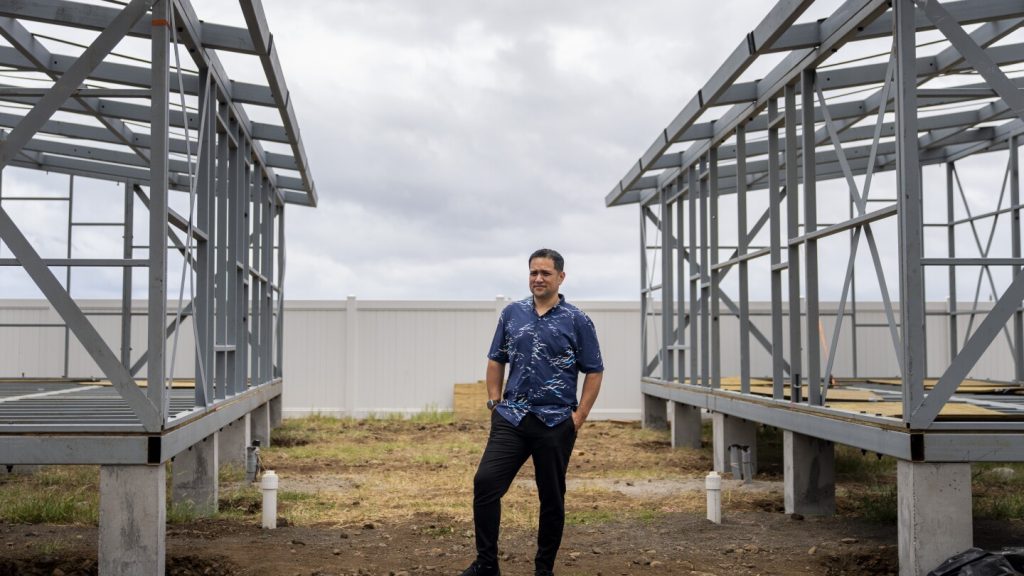The Kako’o Maui Resource Center in Kahului, Hawaii, continues to be a crucial hub for those affected by the Lahaina fires that occurred 11 months prior. Led by the Council for Native Hawaiian Advancement (CNHA), the center provides essential services such as housing, financial assistance, and mental health support to those in need. Staffed by Lahaina fire survivors, the center offers a culturally sensitive approach to disaster recovery, aiming to help individuals navigate the recovery process with the spirit of aloha.
With more than 6,000 families receiving assistance at the center, CNHA has been instrumental in Maui’s recovery efforts. The organization not only provides essential services but also supports families taking in displaced loved ones, leases apartments for survivors, conducts workforce development programs, and builds temporary housing. By bridging the gap between local residents and external agencies, CNHA has been able to better understand and address the unique needs of the Hawaiian community, which has historical trauma layered with the recent devastation caused by the fires.
The influx of donations and support following the Lahaina fires has been overwhelming, with contributions coming from individuals all over the world. The outpouring of support, both financial and in-kind, has helped CNHA raise over $40 million, enabling the organization to continue its crucial work in providing housing and assistance to those affected by the fires. With the funds raised, CNHA has pivoted its focus towards housing initiatives that have longer-lasting impacts, such as building temporary housing units to accommodate displaced families for the next five years.
CNHA’s innovative programs, particularly in the realm of housing, have been a cornerstone of its recovery strategy. From providing financial assistance to caretakers of survivors through the Host Housing Support Program to renting and subletting homes to survivors, CNHA has adapted its approach to meet the evolving needs of the community. By building over 60 temporary two-bedroom units in West Maui, CNHA aims to help survivors repopulate in Lahaina and eventually return to a sense of normalcy amidst the recovery process.
Despite being originally founded to advance Native Hawaiians culturally, politically, and economically, CNHA has remained true to its mission by leading the recovery efforts in Maui. As a native organization, CNHA sees its role in supporting the broader community and upholding the spirit of aloha for all residents of Hawaii. By focusing on inclusivity and community upliftment, CNHA has seamlessly integrated disaster recovery efforts into its core mission, demonstrating the resilience and strength of the Hawaiian people in times of crisis.
Looking ahead, CNHA recognizes the ongoing challenges facing Maui in its recovery journey. The organization is concerned about the potential loss of Hawaii’s unique cultural fabric as residents are forced to leave the island due to housing and cost-of-living issues. CNHA is dedicated to addressing these concerns by advocating for policies that support residents’ ability to stay in Hawaii, thereby preserving the essence of the community. Despite the challenges, CNHA remains proud of its accomplishments, particularly the ability to provide housing solutions and support to families in need during this critical time of recovery.


